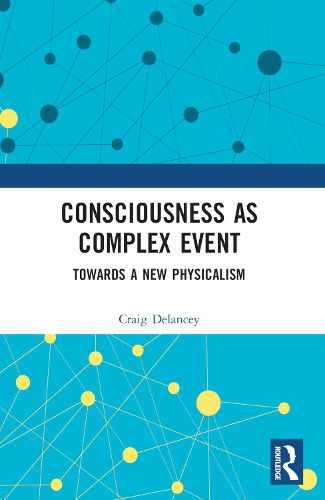Readings Newsletter
Become a Readings Member to make your shopping experience even easier.
Sign in or sign up for free!
You’re not far away from qualifying for FREE standard shipping within Australia
You’ve qualified for FREE standard shipping within Australia
The cart is loading…






Consciousness as Complex Event: Towards a New Physicalism provides a new approach to the study of consciousness. The author argues that what makes phenomenal experiences mysterious is that these experiences are extremely complex brain events. The text provides an accessible introduction to descriptive complexity (also known as Kolmogorov Complexity) and then applies this to show that the most influential arguments against physicalism about consciousness are unsound. The text also offers an accessible review of the current debates about consciousness and introduces a rigorous new conception of physicalism. It concludes with a positive program for the future study of phenomenal experience. It is readable and compact and will be of interest to philosophers and cognitive scientists, and of value to advanced students of philosophy.
Key Features
Provides a new approach to the study of consciousness, using information theory. Offers a valuable discussion of physicalism, of use in other disciplines. Contains an introduction to the main literature and arguments in the debate about consciousness. Includes an accessible overview of how to apply descriptive complexity to philosophical problems.
$9.00 standard shipping within Australia
FREE standard shipping within Australia for orders over $100.00
Express & International shipping calculated at checkout
Consciousness as Complex Event: Towards a New Physicalism provides a new approach to the study of consciousness. The author argues that what makes phenomenal experiences mysterious is that these experiences are extremely complex brain events. The text provides an accessible introduction to descriptive complexity (also known as Kolmogorov Complexity) and then applies this to show that the most influential arguments against physicalism about consciousness are unsound. The text also offers an accessible review of the current debates about consciousness and introduces a rigorous new conception of physicalism. It concludes with a positive program for the future study of phenomenal experience. It is readable and compact and will be of interest to philosophers and cognitive scientists, and of value to advanced students of philosophy.
Key Features
Provides a new approach to the study of consciousness, using information theory. Offers a valuable discussion of physicalism, of use in other disciplines. Contains an introduction to the main literature and arguments in the debate about consciousness. Includes an accessible overview of how to apply descriptive complexity to philosophical problems.